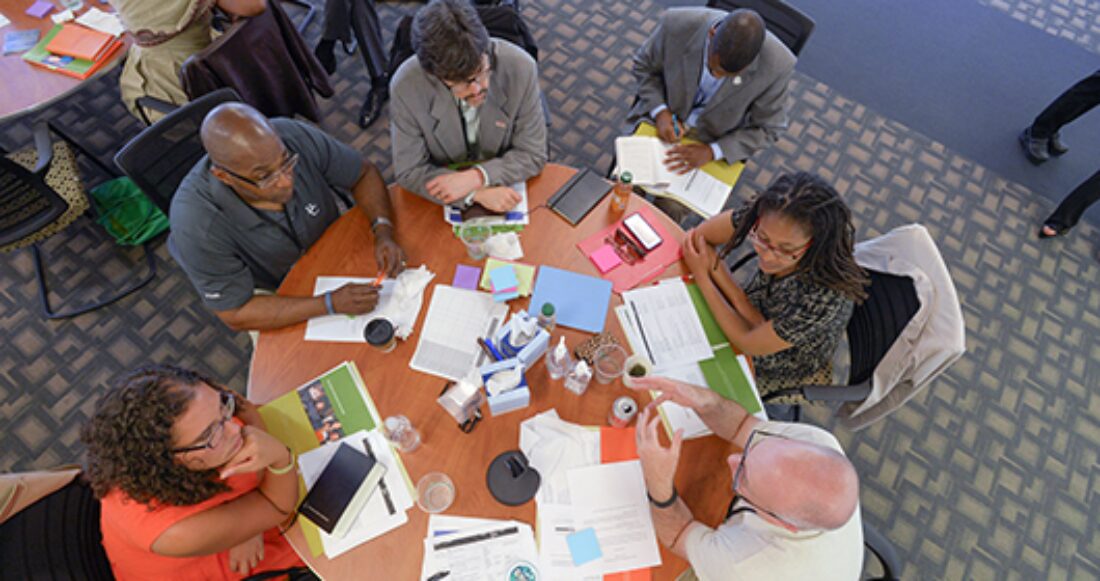Applying the Leadership Lessons of Casey’s Children and Family Fellowship

Catherine Lester, Guest Blogger
The drive towards improved results for kids and families can be hard, and the data are often disheartening. At the same time, the work is both noble and hopeful. As tomorrow’s nomination deadline nears for the next class of Casey Children and Family Fellows, I was asked to share how my Fellowship immersion in results-based leadership has shaped my work as I became director of Seattle’s Human Services Department this year.
Seattle is one of the nation’s fastest growing cities, with an additional 120,000 people anticipated to move to the city over the next 20 years. This is a city of tremendous resources and opportunity, and yet severe and persistent economic and racial disparities exist. In Seattle:
- 13% of families with children live at or below the poverty line
- One in four people of color live at or below poverty, while nearly one in three children of color live in poverty
- 50% to 62% of children of color graduate from high school on time, compared to 84% of white children
- 9% of people of color are unemployed, compared with 5% of whites
- One in three residents pay 30% or more of their income towards housing expenses
Seattle Mayor Edward B. Murray has established a bold public policy agenda to make Seattle an affordable and livable city, including the passage of $15/hour minimum wage legislation and universal preschool. Mayor Murray is equally committed to ensuring that city government is both results-driven and performance based, and is clearly focused on addressing disparities.
The Human Services Department invests $89 million annually in the human services safety net that supports the great Seattle region. Over the last few years, we have been designing and testing an Outcomes Framework, based on the principles of Results-Based Accountability. This framework aligns with Mayor Murray’s commitment to results and performance, and is helping the department begin to shift to a results culture by using whole population data to inform a set of outcomes and indicators that guide investment decisions.
This transformation has been a significant lift for the department and the broader community. In reflecting on the journey to date, there are five key points that I want to share as lessons to others engaged in this important of work.
First, language matters. Creating a shared language is so important and will make sure that your team is moving in the same direction. In our work at the Seattle Human Services Department, we started by creating common definitions and helping to establish consistency with how we were defining terms like outcomes and indicators.
Secondly, remember to take the most strategic “bite out of the elephant.” This work is so enormous and the enormity can make it seem overwhelming. Sometimes this will cause people to want to continue to engage in endless talk and avoid moving to action. Thinking about what steps can make the greatest difference, and taking on the work in chunks, is critical to overcoming the obstacle of process paralysis.
Third, recognize that even positive change means that people are being asked to lose something. This reflection was true for our department’s staff as much as for our community partners. And as is often the case, the change did not become real until it directly affected an individual, either because their job duties were shifting or funding was being reallocated. I spent many hours in conversation with people, helping them to grieve their old way of being and then supporting them to evolve as they began to take up new ways of doing their work.
Fourth is that focusing on racial disparities is critical, but must be approached with care and patience. One challenge is the lack of disaggregated data, or poor data quality that can give a false picture about a particular community’s well-being. Even in a progressive city such as Seattle, the conversation about how race matters can be delicate and awkward. Overcoming this calls for leaders throughout the community to lift up the conversation and for funders to be courageous in funding the things that create measurable results and address racial disparities, and not funding the things that don’t.
Finally, the drive to results cannot happen if there is not also an intentional investment in capacity. Increasingly, I have begun to talk about the necessity of investing in the capacity of human services providers. Unless public and private funders join together to invest in the capacity of the provider network, the aspirations for a results culture risk futility. This investment in capacity in needed in the areas of data, evaluation and analytics; financial infrastructure; staffing, both in terms of bodies and credentials; and in the leadership of the executives and boards entrusted to govern these agencies.
In the Fellowship, we learned one more lesson for focusing on results — how to personally stand by and support each other, and how to have faith in ourselves. And this support is one of the greatest gifts of the Fellowship. We collected quotes that could inspire us during the most difficult times. I will leave you with one from the great Mary McLeod Bethune, who said: “Faith is the first factor in a life devoted to service. Without it, nothing is possible. With it, nothing is impossible.”
Nominations for Casey’s Children and Family Fellowship are due by 5 p.m. ET on Oct. 2, 2015. Candidates must be nominated before they can fill out applications, which are due by Oct. 9.






